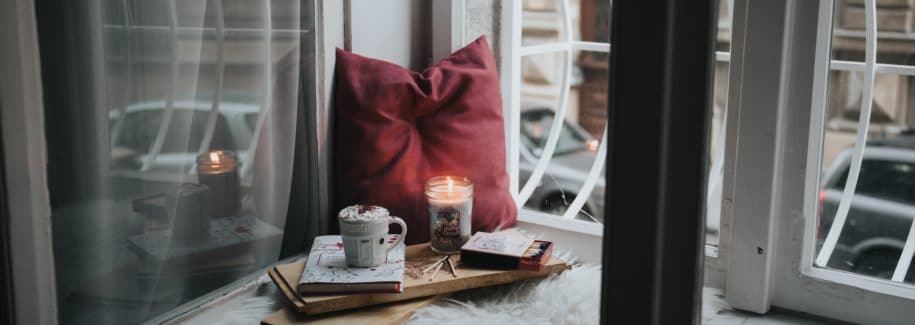Â
Furnaces are the most commonly used residential heating system in the United States. Running most often on gas, but sometimes on oil, propane, or electricity, furnaces deliver their heat through a duct system. Since we don’t use our heaters too often in Florida, it’s easy to neglect routine maintenance. But there’s nothing worse than turning on your heater on a cold winter morning and finding your heater not working! According to Angie’s List, some HVAC experts say up to 75% of no-heat calls in the winter are related to a lack of maintenance.Â
Neglecting your furnace can also create serious health hazards. Let’s take a look at these common furnace hazards and explain how to protect yourself and your family from these dangers.
Carbon Monoxide Poisoning
Carbon monoxide poisoning is a life-threatening emergency that occurs from inhaling carbon monoxide (CO) fumes. CO is a colorless, odorless gas made when fuels such as wood, gasoline, natural gas, or kerosene burn. Breathing in carbon monoxide prevents the body from using oxygen properly, which can harm the brain, heart, and other organs. An estimated 500 people die each year, and 15,000 people are taken to emergency rooms, because of exposure to carbon monoxide. Most of these are avoidable and occur in the winter when our homes are closed and heaters are in use.Â
Regular maintenance of your home’s heating and ventilation system will help prevent a carbon monoxide leak. You should also protect yourself with alarms installed on every floor and near every bedroom in your home as well as one by your furnace (at a distance of 10 or more feet away). According to the U.S. Consumer Product Safety Commission (CPSC), a qualified heating contractor should inspect your home heating system annually. The technician will check your furnace, its electrical and mechanical components, thermostat controls, and automatic safety switches. Checking ventilation systems for any blockages or cracks that could allow carbon monoxide to leak into your home prevents HVAC safety hazards.
Carbon monoxide is especially important to be aware of if your house has a chimney and you use your fireplace. If unchecked for an extended period of time, a chimney can gather grime and soot. This can trap some of the fumes in the house, including carbon monoxide. Even if you don’t have a chimney, the furnace burner, electrical wiring, mechanical controls, and more can also be potential causes of this dangerous gas. A Gator Air & Energy technician can ensure that your house is clean of carbon monoxide and help prevent future issues by finding areas where the gas might get trapped in heating the house.
Allergens
Your furnace heats your home by taking in air, warming it, and dispersing it through your home via ductwork and in-room vents. During the spring and summer months, your unit accumulates dust as well as allergens and indoor air quality contaminants including pollen, mold, and pet dander, which are then circulated through your home when you turn on the heater. The immediate effects of encounters with these pollutants can include:
- Irritation of the eyes, nose, and throat
- Headaches
- Dizziness
- Fatigue
Long-term effects from the presence of these pollutants sometimes involve:
- Humidifier fever
- Hypersensitivity pneumonitis
- Asthma
- Respiratory diseases
- Heart disease
- Cancer
Dr. Adrian Casillas, an assistant professor of medicine in the division of clinical immunology and allergy at the University of California, at Los Angeles, School of Medicine suggests that one way to cure this problem is to have your heating ducts cleaned prior to firing up your furnace for the first time. In addition to cleaning your ducts, Gator Air & Energy will conduct a thorough inspection to check your ducts for holes and leaks, hidden restrictions, and insufficient insulation that could cost you extra money each month on your energy bill.
FireÂ
Whether gas or electricity powers your furnace, it has the potential to be a fire hazard for your furnace. As we explained in a previous article, the furnace burner is the spot in your central heating unit where air and fuel are burned to produce heat. Because there’s an actual flame here, it’s very important that the burner is clean of any dirt, grime, grease, or anything else that could inadvertently catch on fire. Gator Air & Energy technicians have the proper tools and equipment to carefully and thoroughly clean your gas or electric furnace and are also trained to identify and remedy potentially dangerous electrical issues such as frayed wires or corroded electrical contacts before they cause a dangerous house fire.Â
Crowding
Your furnace needs room and unobstructed airflow to operate properly. You should always keep at least a 3 ft clearance around all sides of your unit. This will not only make it easier for your Gator Air & Energy technician to service your unit but it will help ensure that combustible items are not in the immediate vicinity. Never store volatile chemicals such as gasoline, paint thinners, or paint near your furnace. The high heat and sparks produced could ignite dangerous fumes. It’s also important to avoid clutter around your furnace. Hang laundry several feet away from your unit and keep cleaners and detergents capped securely and at a distance.Â
Neglect
Dirt and neglect are the top causes of heating and cooling system inefficiency and failure. Routine maintenance is the best way to ensure your furnace continues to operate at peak efficiency. Trane recommends scheduling an appointment to have a licensed HVAC technician inspect your furnace annually before the heating season begins because most furnace problems can be caught early with preventative maintenance. With regular maintenance, feel confident that when it comes to turning your furnace on, it will work safely.Â
Annual maintenance can also save the cost of an emergency call for a costly repair.
When performing routine maintenance on your furnace, a Gator Air & Energy technician will:
- Check the combustion chamber for cracks
- Test for carbon monoxide (CO) and remedy if found
- Adjust blower control and supply-air temperature
- Clean and oil the blower
- Remove dirt, soot, or hazardous corrosion from the furnace or boiler
- Check fuel input and flame characteristics, and adjust if necessary
- Seal connections between the furnace and main ducts.
We hope this information has deepened your understanding of how important it is to have your furnace inspected by a professional. If it’s been more than 12 months since your last furnace inspection, contact Gator Air and Energy to set up an appointment so we can make sure your furnace will be ready for the next cold snap and you and your family will enjoy a warm and safe winter season!





